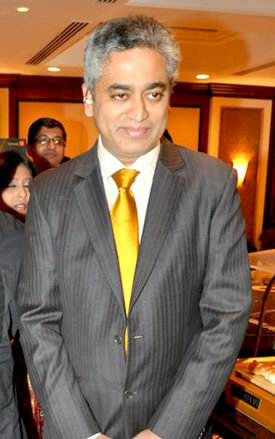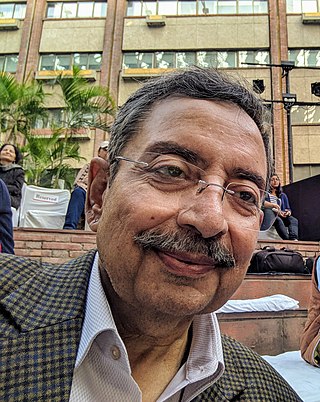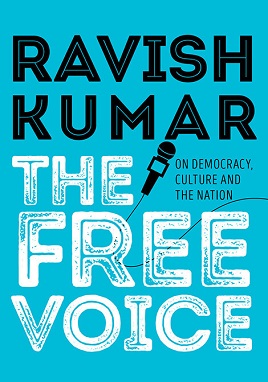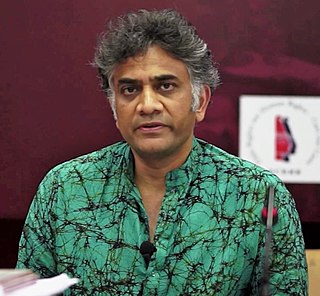
Rajdeep Sardesai is an Indian news anchor,reporter,journalist and author. He is a consulting editor and anchor of India Today Television. He was the Editor-in-Chief of Global Broadcast News,that included CNN-IBN,IBN7 and IBN-Lokmat,before resigning in July 2014.

Jagdish Tytler is an Indian politician and former Member of Parliament. He has held several government positions,the last being as Minister of State for Overseas Indian Affairs,a post from which he resigned after publication of a report by an official commission of inquiry,known as the Nanavati Commission.

Tanushree Dutta is an Indian former actress,model and beauty pageant titleholder who won Femina Miss India Universe 2004 and then represented her country at Miss Universe 2004 in Ecuador where she placed Top 10.

Indira Jaising is an Indian lawyer and activist. Jaising also runs Lawyers' Collective, a non-governmental organization (NGO),the license of which was permanently cancelled by the Home Ministry for alleged violations of the Foreign Contribution Regulation Act in 2019. The Bombay High Court later passed an order to de-freeze NGO's domestic accounts. The case is ongoing in the Supreme Court of India.

Vinod Dua was an Indian journalist who worked in Doordarshan and NDTV India. In 1996,he became the first electronic media journalist to be bestowed with the Ramnath Goenka Excellence in Journalism Award. He was awarded the Padma Shri for Journalism in 2008 by the Government of India. In June 2017,for his lifetime achievement in the field of journalism,Mumbai Press Club awarded him RedInk Award,which was presented to Dua by Devendra Fadnavis,former Chief Minister of Maharashtra.

Arnab Ranjan Goswami is an Indian news anchor and journalist. He is the managing director and editor-in-chief of Republic Media Network.

The Caravan is an Indian English-language,long-form narrative journalism magazine covering politics and culture.

Ranjan Gogoi is an Indian former advocate and judge who served as the 46th Chief Justice of India from 2018 to 2019,having previously served as a Judge of the Supreme Court of India from 2012 to 2018. He is currently a Member of the Rajya Sabha,having been nominated by President Ram Nath Kovind on 16 March 2020. Gogoi served as a judge in the Gauhati High Court from 2001 to 2010,and then was transferred as a judge to the Punjab and Haryana High Court from 2010 to 2011 where he later was the Chief Justice from 2011 to 2012. He is also a member of the Committee on External Affairs in the Rajya Sabha.
Sanjiv Chaturvedi is an Indian Forest Service (IFoS) officer posted as Chief Conservator of Forest (Research) at Haldwani in the Nainital district of Uttarakhand. Chaturvedi was a Chief Vigilance Officer (CVO) at AIIMS,New Delhi from 2012 to 2014,and served in the government of Haryana from 2005 to 2012.

WION is an Indian English language news channel headquartered in Noida,India. It is owned by the Essel Group and is a part of the Zee Media network of channels.

The Wire is an Indian nonprofit news and opinion website. It was founded in 2015 by Siddharth Varadarajan,Sidharth Bhatia,and M. K. Venu. It counts among the news outlets that are independent of the Indian government,and has been subject to several defamation suits by businessmen and politicians.
The Indian#MeToo movement began in late 2018 to manifest in areas of the Indian society including the government,the media,and the Bollywood film industry. In India,the Me Too movement is seen as either an independent outgrowth influenced by the international campaign against sexual harassment of women in the workplace,or an offshoot of the American "Me Too" social movement. Me Too began gaining prominence in India with the increasing popularity of the international movement,and later gathered sharp momentum in October 2018 in the entertainment industry of Bollywood,centered in Mumbai,when actress Tanushree Dutta accused Nana Patekar of sexual harassment. This led to many women in the news media,Indian films,and even within the government to speak out and bring allegations of sexual harassment against a number of perpetrators.
The Jasleen Kaur harassment controversy stemmed from the allegation of sexual harassment made by Jasleen Kaur against Sarvjeet Singh in 2015 and the events that followed. In August 2015,Jasleen Kaur,a woman from Delhi posted a photo of Sarvjeet Singh on Facebook,alleging that Singh had sexually harassed her. The post went viral on social media in India,garnering widespread attention. National celebrities and politicians provided Kaur with widespread support for raising her voice against eve-teasing and sexual harassment on social media.

Rebecca Mammen John is a Senior Advocate at the Supreme Court of India,and works primarily in the field of criminal defence. She has represented parties in several widely reported cases,including the families of victims of the 1987 Hashimpura massacre,Indian stockbroker Harshad Mehta,and the accused in the Aarushi murder case. She has also been appointed as a Special Public Prosecutor on occasion by the High Court of Delhi,and frequently comments in leading newspapers and the media on issues of criminal justice reform in India.

Priya Ramani is an Indian journalist,writer,and editor. In October 2018,during the Me Too movement in India,Ramani alleged sexual harassment against now-former Minister of State for External Affairs M.J. Akbar,and in February 2021,Ramani was acquitted in the criminal defamation case Akbar had filed against her. In October 2020,Ramani co-created the India Love Project on Instagram.
Geeta Luthra is a Senior Advocate in the Supreme Court of India.

In India,the Pegasus Project investigations alleged that the Pegasus spyware was used on ministers,opposition leaders,political strategist and tacticians,journalists,activists,minority leaders,Supreme Court judges,religious leaders,administrators like Election Commissioners and heads of Central Bureau of Investigation (CBI). Some of these phones were later digitally &forensically analysed by Amnesty International's Security Lab on 10 Indian phones and the analysis showed signs of either an attempted or successful Pegasus hack. However,the Supreme Court of India stated that the technical committee had found 'malware' in 5 of the 29 phones,but not able to say conclusively that the malware found was Pegasus. The Chief Justice also mentioned that the government refused to cooperate in the investigation.

The Free Voice:On Democracy,Culture And The Nation is non-fiction book written by Ramon Magsaysay Award-winning journalist Ravish Kumar on India's democracy and its backsliding under Prime Minister Narendra Modi..

Aakar Patel is an Indian journalist,activist and author. He served as the head of Amnesty International in India between 2015 and 2019,and currently serves as the chair of the Board of Amnesty International in India. He is the author of Our Hindu Rashtra,an account of majoritarianism in India,and of Price of the Modi Years,which examines the administrative performance of Indian Prime Minister Narendra Modi. In 2014,he authored a translation of Saadat Hasan Manto's Urdu non-fiction Why I Write.
Fahad Shah is an Indian journalist from Srinagar,Jammu and Kashmir. He is the founder and editor of the news magazine The Kashmir Walla. He was a recipient of a Human Rights Press Award in 2021.















